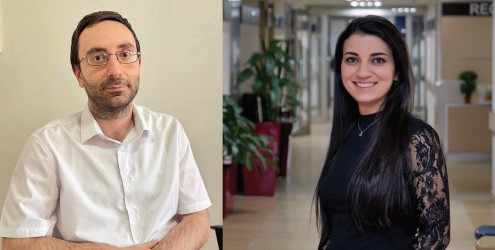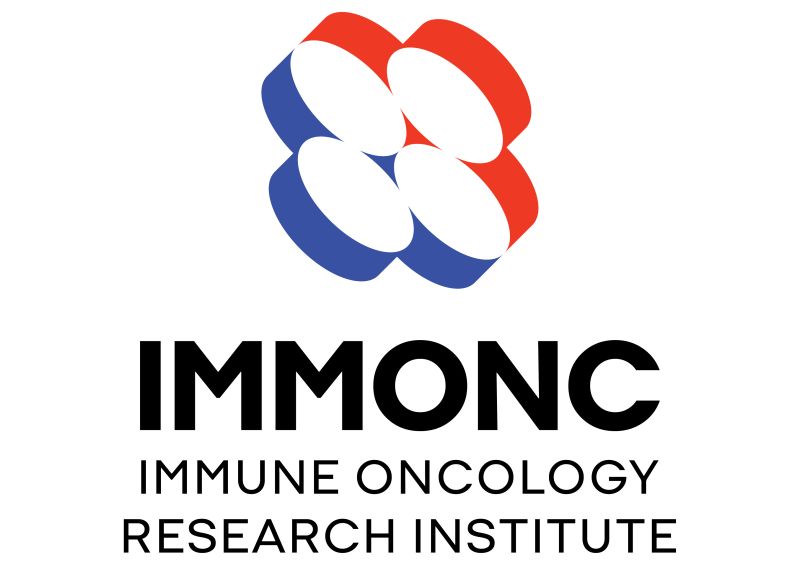Cancer affects people across the world regardless of their socioeconomic status. However, low- and middle-income countries like Armenia face significant obstacles in addressing cancer due to limited resources, infrastructure, and access to innovative research and treatment facilities.
Armenia is a middle-income country located at the crossroads of Europe and Asia; it has a high human development index but limited resources. The healthcare system in Armenia is fragmented and the majority of healthcare costs are paid out-of-pocket. Patient access to cancer drugs is limited due to high prices and lack of availability.
Traditionally, research has not been regarded as a component of a healthcare provider’s career in Armenia and public funding for research is scarce. However, the generational shift in the workforce over the past decade, coupled with the rapid developments in cancer research worldwide, has stimulated interest among young practitioners to participate in research with the aim of improving outcomes among their patients and ensuring access to novel therapies.
In mid-2022, the Immune Oncology Research Institute (IMMONC) was established.
IMMONC is a non-profit foundation aiming to advance cancer research in Armenia and increase access to clinical trials in the region.
Since its establishment, IMMONC has launched several investigator-initiated studies to stimulate research uptake among physicians. These include:
Assessment of the Safety and Efficacy of Balstilimab for the Treatment of Relapsed/Refractory Lymphomas (IMMONC0001) (NCT05891821) – This phase II investigator-initiated trial of the PD-1/PD-L1 inhibitor balstilimab is done in collaboration with Agenus Inc. The trial received approval from regulatory authorities in just 26 working days. It started recruiting participants in September 2023. So far, about half the recruitment goal is achieved.
The Blastic Plasmacytoid Dendritic Cell Neoplasm (BPDCN) International Registry (NCT05430971) – This is a multicenter, international, prospective, and retrospective registry. So far, nineteen centers across 13 countries have joined the registry. Recruitment began in 2022 and will continue until 2027. Preliminary results from the registry were presented in 2023 at the Annual Meetings of the American Society of Hematology (ASH) and the Society of Hematologic Oncology (SOHO).
Continuous Infusion of First-Generation 5-HT3 Receptor Antagonists in Combination with Dexamethasone (NCT05872893) – This trial explores the potential of continuous infusion of ondansetron in combination with dexamethasone to enhance the antiemetic effect compared to push injection. The trial started recruiting patients in June 2023, it recruits pediatric and young adult patients receiving highly or moderately emetogenic chemotherapy. So far, 55% of the recruitment goal is achieved. The trial is set to be completed in early 2025.
Rare Embryonal Tumors of the Central Nervous System: International Registry (NCT05711992) – Launched in December 2022, this registry collects data from patients diagnosed with various rare embryonal tumors, including but not limited to ETMR, FOXR2-activated CNS neuroblastoma, cribriform neuroepithelial tumor, and more. Pediatric and young adult patients up to the age of 25 are enrolled. Data is collected from eleven centers across nine countries, with several centers set to join in the coming months.
Assessment of the Safety and Efficacy of Balstilimab in Combination with Botensilimab for the Treatment of Non-Small Cell Lung Cancer (IMMONC0008) (NCT06322108) – This is a phase II single-center, single-arm, open-label investigator-initiated trial of PD1 inhibitor Balstilimab in combination with novel Fc enhanced CTLA4 inhibitor Botensilimab as first-line treatment for patients with metastatic non-small cell lung cancer (NSCLC) without actionable EGFR and ALK mutations/alterations.
Approximately 45 participants will be enrolled in the study with an enrollment period of 24 months. Subjects enrolled in the study will receive botensilimab for up to 4 cycles and balstilimab for up to 2 years. The primary endpoint of the study is 12-months progression-free survival, while secondary endpoints are overall survival, overall response rate, safety, tolerability and health-related quality of life.
This study has received approval from regulatory authorities in just 35 working days. It is set to launch in May 2024 and is anticipated to provide crucial insights into the potential of this promising treatment regimen for NSCLC patients.
IMMONC has started a project to assess the real-world experience of immunotherapy use in Armenia.
Launched in December 2022, this study aims to collect comprehensive nationwide data on the use of immunotherapy among cancer patients in Armenia. The study has retrospective and prospective components and covers a period of 7 years (2017-2023).
It assesses the real-world efficacy of immunotherapy agents, investigates associated toxicities and immune-related adverse events and compares response assessment techniques used by different centers. The study also examines predictors of unwanted delays and shorter treatment durations compared to guideline recommendations, as well as the prices of immunotherapy drugs in Armenia and their affordability.
This study will provide a comprehensive view of the current state of immuno-oncology in Armenia, it will help identify patients who will benefit the most from immunotherapy and identify the financial and socioeconomical challenges in the field.
Besides these, through global collaboration, four multidisciplinary oncological working groups were created under the supervision of IMMONC.
These working groups were formed with an aim to enhance cancer care through interdisciplinary discussions, knowledge sharing, and research. These are the lung cancer working group, the breast cancer working group, the gastrointestinal cancers working group, and the leukemia working group.
They are created by leaders in the field of oncology in Armenia and advisers from leading hospitals in the US and Canada. These twinning programs aim to discuss challenging cases from Armenia and help improve patient care in Armenian centers by going through novel therapeutic options and treatment guidelines and fostering scientific publications.
With mentors and experts from the world’s leading cancer institutions guiding each group, these groups serve as a platform to foster continuous professional development among young healthcare professionals and expand their networks.
IMMONC also launched a fellowship program to support young doctors interested in immunotherapy research.
The program aims to engage fellows in independent research projects and provide them with the opportunity to contribute to the field of oncology. Under this program, fellows work on their proposed research projects under the supervision of mentors assigned by IMMONC.
In addition to that, IMMONC provides financial support to young professionals from Armenia to enable their participation in educational programs/events abroad as part of its mission to promote professional development and build capacity to conduct clinical trials in Armenia. So far, IMMONC has supported 30 young doctors and scientists in this regard.
Overall, during the last few decades, only 4 oncology clinical trials that were registered in clinicaltrials.gov were conducted in Armenia. In these past 2 years, this number has reached 9 trials, 5 of which are conducted by IMMONC. IMMONC has also contributed to boosting scientific publications from Armenia by publishing many articles in respected journals as well as publishing numerous abstracts through ASCO and ELN.
Despite Armenia’s limited resources, IMMONC was able to start many projects through fruitful collaborations with leading experts in developed countries and by working in synergy with national health authorities to advance cancer research in Armenia.
More information about IMMONC and its projects can be found at immonc.org and at oncodaily.com
By Samvel Bardakhchyan and Karen Bedirian



